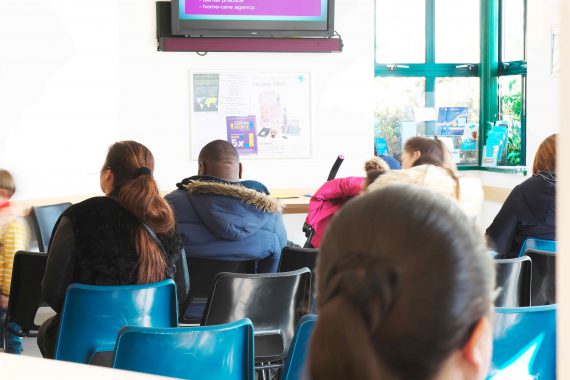The survival of general practice is ‘at breaking point’, according to researchers who blamed a shifting model of care based on underfunding and growing societal health inequalities.
The way in which general practice now operates has in some cases led to services becoming ‘dehumanised, deprofessionalised, clinically compromised, unfulfilling and unsafe’, an analysis found.
A team at the University of Oxford who have been studying the shift to remote care since the pandemic told delegates at the Society of Academic Primary Care that primary care is now at – or in some cases beyond – breaking point with ‘substantial risks to patients’ as well as the ‘very survival of general practice’.
It follows a previous analysis by the same team which found that serious harms associated with remote GP consultations are rare but also that training for GPs and other practice staff has not kept pace with remote consultation technology.
Most GP practices have now moved to a hybrid model with a mix of in-person consultations as well as remote care, they said. Yet there have also been other sweeping changes in terms of digital triage, and fragmented care shared between newer roles in primary care, they explained.
To evaluate the impact on quality of care, the team did a series of visits over two years to 12 general practices but also assessed the wider context in which they were working through CQC national and individual practice reports and patient survey data, as well as taking into account measures of patient safety, continuity and holistic care.
Presenting their findings at the SAPC annual conference in Bristol, the team said clinicians still aspired to deliver traditional relationship-based, compassionate care with ongoing support for their patients but were finding this ‘increasingly difficult’.
‘Staff are stressed, demoralised and leaving; quality of clinical care is sometimes compromised; many patients are dissatisfied and frustrated; and we believe there are significant risks to patient safety,’ they concluded.
At the same time, primary care is dealing with societal issues outside its control including the impact of financial austerity, loss of a social safety net, health inequalities – which GP teams could help mitigate but not solve – and complex patterns of illness.
Speaking with Pulse, lead author Dr Rebecca Payne, a GP and NIHR in-practice fellow at the University of Oxford, said their conclusions would not be a surprise to those working in general practice.
‘None of this is rocket science, these are the issues we are all talking about, but this is the evidence that confirms what everyone is experiencing.’
A key finding she stressed is that there are many problems outside GPs control. ‘There are contextual factors that make it really really difficult to deliver quality care,’ she added pointing to funding constraints as well issues around benefits and social support systems that all puts more pressure on surgeries.
But the team also found increasing inefficiencies and fragmented care, with issues that would have been solved in one face-to-face consultation with a GP in the past, such as a UTI in a menopausal woman, now resulting in a string of admin tasks and contact with multiple health professionals.
‘Efficiency has been really compromised,’ she said and there has also been a trade off in favour of access and away from continuity.
Dr Payne, who is also former chair of RCGP Wales, said inefficiencies could been seen in multiple places including the setting up of urgent care services away from general practice to meet demand: ‘The fragmentation of care in England is such a massive issue. We need to ask is this the best way or do we need to invest money into general practice.’
This week, in his first official NHS visit, new health secretary Wes Streeting said he was committed to ‘reversing’ the underfunding of general practice, and recommitted to Labour’s manifesto promise of ‘bringing back the family doctor’.
However the BMA’s GP Committee warned against taking money from hospitals to boost GP funding.















Yes but is anyone listening? This direction of travel was obvious some years ago. Is there any evidence that triage in GP works? Is there evidence that allied health professionals are efficient? Safe I can believe but at the cost of close oversight and low thresholds for passing the patient up the ladder. Extreme fragmentation of care and poor communication another danger. Solution? All F2F. No phonecalls unless GP initiated. Experienced GP as the first assessor, in person. The single most efficient and safe interaction in the NHS involves a room, a doc, and a patient.